PRESIDENT’S MESSAGE
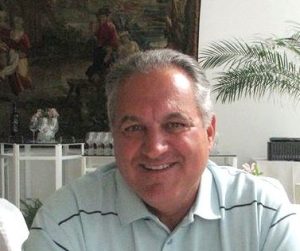 Many thanks to all who helped make our 2022 conference a resounding success, from the all the board members who worked tirelessly in the planning and execution of the conference, to the members who stepped up at the 11th hour to fill last minute vacant panel positions and speaker vacancies, and those who sponsored the coffee service and purchased ads in the program. All that helps a lot.
Many thanks to all who helped make our 2022 conference a resounding success, from the all the board members who worked tirelessly in the planning and execution of the conference, to the members who stepped up at the 11th hour to fill last minute vacant panel positions and speaker vacancies, and those who sponsored the coffee service and purchased ads in the program. All that helps a lot.
Reviewing the attendee evals indicated most everyone really enjoyed and benefitted from the program, even with some minor operational hiccups.
The Board had a Zoom meeting a couple of weeks after the conference to address some issues that became apparent during the conference. As a result, we have decided to make a few changes, nothing too drastic or alarming, but changes that will benefit the PSWA and future conferences.
One issue is our bank accounts. We are still solvent, but now are looking at ways to cut costs for the conference. We are, regrettably, considering raising the conference fee a bit, and the yearly membership, as the cost of producing the conference at the Orleans has gone up, as has the cost of everything—it still is the most affordable venue—and we are not considering a different location. The conference will still be affordable for our members. More information will be following in the next months, and some issues may be addressed by other board members in this newsletter.
One thing I’ve notice is our membership is increasing, thanks to members who, through word of mouth, convinced their friends/colleagues of the value and benefits of joining the PSWA. Hopefully, we will see an increase in the number of attendees at the 2023 conference.
Each year, I am amazed at the job Mike Black does with organizing the panels and speakers. I can’t thank him enough for the years he has voluntarily taken on this arduous task! Same for all the other board members who willingly handle the myriad tasks necessary to ensure the quality and success to which we are accustomed.
So, as summer morphs into fall, planning of the 2023 conference has started. If any member is interested in helping out, feel free to let Mike Black know. I’m sure he will much appreciate it – docatlas108@aol.com
Stay safe and bless you all!
See you in July 2023!!
–John Schembra
President, PSWA
From the Secretary
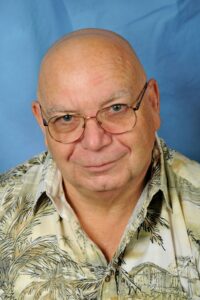 Well, the 2022 Public Safety Writers Association Conference was held at the Orleans Hotel in July, and even with a few Covid 19 glitches as well as airline delays and cancelations, Mike Black did a fantastic job of organizing conference presentations, panels and speakers. (And I just did an excellent job of writing a run-on sentence.) The speakers were some of the best we have ever had and provided the attendees with a wealth of information to build their writings around.
Well, the 2022 Public Safety Writers Association Conference was held at the Orleans Hotel in July, and even with a few Covid 19 glitches as well as airline delays and cancelations, Mike Black did a fantastic job of organizing conference presentations, panels and speakers. (And I just did an excellent job of writing a run-on sentence.) The speakers were some of the best we have ever had and provided the attendees with a wealth of information to build their writings around.
The Thursday workshop was a success again and was so through the writing and teaching skills of Mike Black, Kelli Peacock and Marilyn Meredith. Attendees gather together Thursday night for food and libation and walked away with new friends, resources and a hint of what was to come during the rest of the conference.
Our president John Schembra did an excellent job of emceeing the conference and was the perfect politician dealing with our members.
Friday morning the conference began with coffee, lots of coffee. Each day started with lots of coffee. Friday morning started with a presentation on insurance fraud and how affects the insurance industry and the insurance consumer. Boy, I can see new novels coming out of that presentation.
The meals each day were fantastic. Bob Calkin did an excellent job planning the meals and coordinating the conference with the hotel. He also did an excellent presentation on Search and Rescue dogs.
Barbara Hodges did a fabulous job running the writing conference. She solicited judges from outside the organization to judge the book submissions. The manuscripts did not contain the authors name and the judges remained unknown to the authors. Barbara had eighty-two submissions to the various contests and had forty submissions that received various awards.
Kelli Peacock appeared on panel discussions and was this year’s photographer.
RJ was the technical guru who handled all the electronics that helped make the conference the success that it was.
Marilyn Meredith, as always with a wealth of information and is probably the most prolific novelist in our group.
The books store was a major success. I never saw so many books for sale. I thought I was in a Barnes and Noble.
Me, I didn’t do much of anything. I just unloaded the PSWA materials stored in my garage from year to year and transported them to the hotel.
As you start to prepare the 2023 conference, Covid 19 should be behind us, the airlines hopefully will be back on schedule and your contest manuscripts submitted, please try and recruit at least one new member into the folds of PSWA.
Keith Bettinger
–PSWA Secretary
WRITING COMPETITION CHAIR
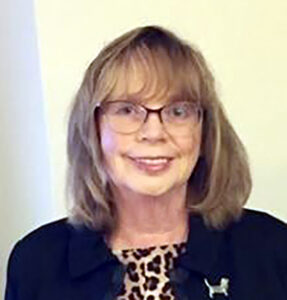 I had a great time at this year’s conference in July. Every year, the conference gets better. I especially enjoyed the writer’s workshop presentation of the Muddled Middle. I know we’ve all been there. Dynamite opening, fantastic ending to our stories, but that darn middle. How to get from that great opening to the satisfying ending? Thanks to the presentation, I know have a clearer path to do just that. Thanks Mike Black.
I had a great time at this year’s conference in July. Every year, the conference gets better. I especially enjoyed the writer’s workshop presentation of the Muddled Middle. I know we’ve all been there. Dynamite opening, fantastic ending to our stories, but that darn middle. How to get from that great opening to the satisfying ending? Thanks to the presentation, I know have a clearer path to do just that. Thanks Mike Black.
I also have fun on the panels I take part in, but this year’s panel of using software to help with writing was one of the best. It was also my first time at being a moderator. But it went well.
Of course, I loved the writing competition awards. It’s the culmination and recognition of hard work. By me, my judges and, of course, the great writers who submit their work. A big shout out to the judges and to Tim Dees who helped me so much.
We had a board meeting after the conference to discuss the feedback we received. Most of which was good, a little that was perplexing. I’ve always been of the mind if you see and mention a problem, then also offer a solution.
We discussed much and we’ll continue to do so with our pre-conference meeting in February 2023. A couple of things dealing with the writing competition can’t wait until then.
We are changing the cut-off date to get your entries to me. The competition is growing, and the judges need more time. The writing gets better every year. Which makes it harder for them to pick the winners. To that end, all of your entries must be postmarked March 31, 2023.
Our entry fee hasn’t changed in years. Everything is costing us more. We’ve made changes to keep our expenses as low as possible, but it’s time for us to accept the fee isn’t working anymore.The fee for the 2023 PSWA Writing Competition is now $20.00 for your first entry, and $10.00 for your entries after that.
I will accept your entries January 1, 2023-March 31, 2023. As before, we encourage you to attend the conference to accept your award in person, but if it is not possible, your award will be mailed to you.
There are also exciting changes happening to the awards ceremony. More about that later.
I can’t wait to see how 2023 plays out for the writing competition. Last year provided us with new names, faces and winners. I’m hoping to see even more next year.
So, get writing. Knock my socks off. And make it even harder on the judges. They love it.
–Barbara M. Hodges
PSWA Writing Competition Chairperson
SUPER SEVENTEEN—ONE FOR THE RECORD BOOKS
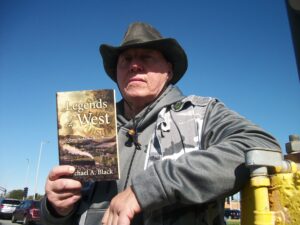
Well, as I sit here and write this almost a month has passed since our Super Seventeen PSWA Conference, and I can truly say, this was one for the record books. At the end of the conference several people came up to me and said they thought this was “the best conference ever.” The evaluations were overwhelmingly positive and complimentary. I have to admit that I heaved a huge sigh of relief as I walked out of the conference room on Sunday afternoon. I felt like I’d been in a tough twelve round fight and left everything I had in the ring.
In the weeks leading up to the conference it appeared we were going to set a record in attendance, and then our old buddy Murphy made an appearance with his law. (For those of you who aren’t familiar with Murphy’s Law, it’s “Whatever can go wrong, will go wrong.” And I usually add, “… at the worst possible moment.”) My high hopes started to dwindle as the conference grew closer and we were hit with a bunch of cancelations for a variety of reasons. This pattern continued right up until the start necessitating a lot of last-minute changes to the program. I wish to thank the efforts of my fellow board members, panel moderators and many of the attendees whom I “drafted” at the last minute to fill in the gaps caused by the cancellations. They all did fabulous and seamless jobs in helping me deal with these unexpected modifications. Adding to my stress level was the fact that I was also battling a deadline for my 7th Trackdown novel, which was due on August 15th. I’d been working steadily on it but had to take time off to work on the conference program and the pre-conference workshop. (Parenthetically, I’m proud to say that I made the deadline with a few hours to spare. Having both the conference and this latest novel in my rearview mirror, I felt like a truck has been lifted off my chest.)
But enough of that. As I said, the conference was a complete success. We started off with the most well attended Pre-Conference Workshop in the history of the conference. Instructors Marilyn Meredith, Kelli Peacock, and I each put on presentation about writing. Marilyn started off with a dynamite presentation about techniques for writing compelling dialogue. I then did mine covering the muddle of the middle, and Kelli followed up with an excellent talk about editing your work. Along the way we did the customary manuscript critiques. We had a fantastic group of attendees and their input to the discussions was very insightful. As I mentioned at the onset of the workshop, we instructors were there to learn new things as well, and that we did.
I had to step out at quarter to three to help set up the conference check-in and enjoyed it, as always. It led up to the cozy get-together event at six, where I was able to sit down and chat with some old friends and meet some new ones. We had a lot of first timers at this conference and it was good to be able to put a face with a name.
Before I get to the conference, I want to commend Kelli Peacock for designing the most fabulous program booklet we’ve ever had. This one had beautiful full color ads of some of our members’ newest books, as well as a nice biography section of the attendees. This one was a real keeper.
Things got off to a nice start on Friday morning. President John Schembra officially opened the conference with his address and got things rolling and Master of Ceremonies and our new PSWA Vice President, R.J. Beam completed the introduction. We next paid tribute to our fallen brothers and sisters in law enforcement as Kelli Peacock read “Too Many Lives,” a poem by Joe Haggerty. (Joe was unable to attend this year but wrote this poem at my request.) We then had a minute of silence in to commemorate their sacrifice.
Moving on, we then handed out the PSWA Appreciation Awards to those who’ve gone above and beyond in their service to the organization. We started this tradition last year when we honored Ron Corbin, Marilyn Meredith, and Geno Munari with the award plaques. This year we gave the awards to Lisa Augilar, Keith Bettinger, Tim Dees, Scott Decker, John Schembra, and Shauna Washington. All the recipients were on hand, including Tim whose picture holding his plaque was projected on the screen.
Our first solo presenter was Rich Wickliff, who talked about “The World of Insurance Crimes” and how they’re both “Invisible and Dangerous.” Rich, who’s spent most of his life investigating these types of crimes held the audience spellbound with his presentation detailing how these scams work and how many crime rings, such as the Russian mob, are involved in the dealings, including human trafficking.
Rich was also one of the panelists on The Art of Writing the Short Story, which followed his presentation. The other panelists, Frank Zafiro, Mark Bergin, Jim Guigli and Mysti Berry gave insightful comments on writing this unique art form, the short story. Writing longer works (the novella and the novel) were also touched upon, and both Mysti and Frank were able to lend their expertise as editors to the conversation.
After a short break the next panel, Crimes, From the Call to the Investigation to Court, got underway. Moderator Dave Cropp led the discussion by law enforcement pros Bob Doerr, Colin Conway, Scott Decker, Darlene Record, and John Schembra. They told how things really work in the course of an investigation. Suffice it to say, unrealistic fictional sleuths like Columbo were not in attendance on this panel.
We then broke for our first fabulous lunch from the Orleans. As usual, the wait staff was both courteous and meticulous in making sure we all got the best service available.
Our second scheduled solo presenter was supposed to be Ms. Jo Wilkins of Mystic Publishing. Unfortunately, about a week before the conference Jo contacted me to relate that she’d had a medical emergency and would not be able to attend. To her credit, she arranged for a substitute presenter to take her place and talk about the same subject, Writing in Viewpoint: How POV Defines Your Work. Ms. Jenni Curtis, who works in the marketing department at Mystic Publishing, did an outstanding job stepping for Jo, and excellently covered this important and often misunderstood aspect of fiction writing.
Our next panel was Using Software to Help You Write, featuring Jim Guigli, George Cramer, Barbara Hodges, Colin Conway, and Frank Zafiro. The panel was moderated by RJ Bean and went over the usage of various software programs, such as Scriviner, that many writers use in their writing. It was both informative and excellent.
The fourth panel of the day was Writing Fiction From Another Time, with Dave Cropp once again moderating as panelists Barbara Hodges, John Bluck, Dave Knop, Marilyn Meredith, and George Cramer all talked about setting their work in the past, present, and future. Needless to say, it was a fascinating panel.
We finished things off with our last panel of the day, Technologically Speaking, moderated by Pete Klismet and featuring Mark Bergin, Joe Padilla, Darlene Record, and Frank Zafro. It was interesting hearing the perspectives of these law enforcement professionals on how technology changed through the courses of their careers.
That closed down day one, and I went up to my room both exhausted and frazzled from dealing with all of the panel reorganizations throughout the day. I think I fell asleep as soon as I lay down. The more intrepid attendees went to the First Timer’s Dinner, which was once again hosted by Pete Klismet. From what I heard, it was a blast.
Saturday go off to a great start as PSWA Treasurer and dog expert, Robert Calkins, started with his wonderful and spellbinding presentation, Contraband and Crooks: Working Dogs in the World of Police, Fire, and SAR. Bob, who’s spent over twenty years as a dog handler, had an excellent array of stories and slides detailing the various aspects of using K9’s. He also had pop quizzes of sorts and handed out prizes to the winners. It was an insider’s look at this fascinating aspect of public safety.
Our publisher’s panel was next. Barbara Hodges did a superlative job moderating this panel, which included several publishers: Austin Camacho of Intrigue Press, Jake Bray from Wolfpack Publishing, Jennifer Hendricks of CKN Christian Publishing, and Jenni Curtis from Mystic Publishing. They all talked about the state of publishing today and what they are looking for in manuscript submissions. It was an informative and mind-expanding glimpse into how the industry professionals work.
After the panel they all went to separate stations and listened to pitches from the attendees in our Meet and Greet the Publishers section. It was a fabulous opportunity for those in attendance. I’m happy to say that numerous attendees took advantage of this great opportunity. The elevator pitches were flying fast and furiously.
We then broke for another good lunch, after which it was time for our next featured speaker. This year we were thrilled to have Austin Camacho deliver an outstanding presentation on effective writing: Write Better: Draft, Rewrite, and Edit. Austin, who’s been a regular attendee and panelist for years, did his customary excellent job. Not only is he a successful publisher (Intrigue Press), but he’s also a great writer, and an editor as well. This guy knows his stuff. He got high praise on the conference evaluations.
After a short break, our panels resumed with Sex and Violence—How Much is Too Much? Moderator Dave Cropp handled this difficult topic with the aplomb of a real pro. The panelists, Dave Knop, Dave Freedland, Thonie Hevron, and Janet Greger were a delight as well. Sex and violence are an inescapable part of our writing world and figuring out how much is too much and how to be both entertaining and tasteful is imperative.
Next up was our nod to the nonfiction writers with Writing Nonfiction. The writing of nonfiction requires a special ability to present facts in such a way to keep the reader engaged as well as recounting actual events that have already occurred. Ex-FBI Special Agent Scott Decker, who wrote a great nonfiction book on the anthrax attack, led panelists Marilyn Wooley, Buz Williams, Bob Haig, Gloria Casale, and Pete Klismet through the discussion.
Our last panel for Saturday was Polishing Your Manuscript. Moderator Kelli Peacock did an outstanding job interviewing the panelists, Austin Camacho, Jenni Curtis, Jim Gugili, Mysti Berry, and Bob Doerr about their individual polishing techniques and writing processes. The panel was evenly divided between the pantsers and the plotters, but all agreed that it’s virtually impossible to get it right on that first draft. The pros and cons of outlining, plotting, editing, and beta readers in perfecting your manuscript were discussed.
We closed down our second day of the conference leaving some time to browse and buy some books. The authors and experts were on hand for book signings and pleasant conversation. It’s rumored that a sequel to the “First Timer’s Dinner” was initiated at one of the hotel restaurants, and from what I heard it was really a humdinger.
On Sunday morning things got off to a somewhat rocky start after Jim Guilgi slipped and took a tumble in the café after breakfast on his way to the conference. In typical tough guy fashion, Jim merely shrugged it off, despite having sustained a nasty looking laceration with an accompanying hematoma. Just like his durable fictional PI, Bart Lasiter, Jim made his way to the conference unfazed and without missing a beat. Luckily, there was a doctor in the house. Dr. Gloria Casale and “nurse” Shauna Washington immediately administered some quick first aid and an ice packet and all was good. I want to personally thank Gloria and Shauna for their kindness and quick action. They both exemplify the best our organization.
We then started off with President John Schembra’s opening words of wisdom, after which Kelli Peacock read, “Why the Child Cried,” a poem by our own PSWA Secretary, Keith Bettinger.
Our first panel, Gathering the Evidence, got underway with the redoubtable Pete Klismet once again leading panelists Gloria Casale, Janet Greger, Bob Calkins, Scott Decker, and Bob Doerr. I want to add that Pete had a sudden bloody nose prior to the panel’s start, but true to his stalwart he-man persona, he proceeded to do the moderating duties with alacrity and professionalism. They discussed the aspects of how evidence is really gathered and preserved at crime scenes. This array of real-life professionals gave us a good understanding of what’s real and what’s only “reel,” as shown on TV.
I stepped up as moderator once more for our penultimate panel, Writing in Different Genres with Marilyn Wooley, Dave Cropp, Kelli Peacock, Marilyn Meredith, John Bluck We had an absolutely delightful time discussing the fictional opportunities that lie in various genres and the blurring of themes and genres that has become common today. We covered everything from romantic suspense to sci-fi mysteries to historical suspense, to name a few. We also touched upon writing flash fiction and poetry.
We finished off our panels with Blogging Your Way to Success as moderator Mysti Berry interviewed Marilyn Meredith, Frank Zifiro, George Cramer, and Thonie Hevron, all of whom have great blogs and have featured many PSWA members as guests. Make sure to take advantage of their generous invitation to appear on their blogs because blogging has become an essential part of promoting not only yourself, but also your latest work.
We had our final book sales as the lunch was prepared. I think we set a record this year with the amount of books sold, despite the problems with the cancelled attendees. As always, the food was magnificent and the service was impeccable. The generosity of our conference attendees was evident in that many left tips on the tables to show their appreciation.
We then moved to the highly anticipated PSWA Writing Competition Awards Ceremony. Barbara Hodges, who is in charge of the competition, made the presentations of these highly prestigious awards. I want to mention here that Barbara has done a tremendous job with this portion of the conference and we had a record number of entries this year. The PSWA Achievement Awards are fast becoming some of the most coveted awards of today.
We then all parted company for this year, satisfied that we’d done our best and given our all. An unfortunate post note is that two attending members, John Bluck and Jim Guilgi came down with covid after the conference. Fortunately, the symptoms were mild in both cases and both gentlemen have now fully recovered.
On a personal note, I wish to thank all who attended and worked very hard to make the PSWA Conference so great, and especially those who stepped up and volunteered to fill the vacancies in the panels. As I mentioned, several people came up to me afterward saying this one was “the best conference ever,” to which I say, Just wait till next year. It’s going to be just as good or better.
–Michael A. Black
Program Chair
AND IT’S A WRAP
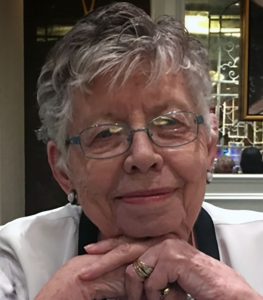
Once again Mike Black, our program chair and the other board members presented us with a memorable conference. Over the years I’ve been to all sorts of mystery and writers’ conferences, and this one has always been my favorite.
Why? Not only are writing and publishing topics discussed, but we hear from experts from so many diverse aspects of law enforcement—a mystery writer’s dream. And these experts are willing to answer all the questions asked of them.
This year was a bit different because we had many new members in attendance. I tried to get acquainted with them all, though I may have missed one or two. Best of all, was spending time with old friends most of whom I haven’t seen since last year.
Putting on a conference like this is a big undertaking. So much has to be planned in advance, and no matter how good the planning there are always a few glitches. Though I heard about some, I certainly didn’t see any.
So, thank you to all who played a part in making this year’s conference the best of them all.
–Marilyn Meredith
Author of the Deputy Tempe Crabtree mystery series, and writing as F. M. Meredith, the Rocky Bluff P.D. series.
Reader Relations

Some PSWA members may have seen this on my blog or the PSWA Facebook page near the end of July. More than 250 people—mostly authors, I suspect—have read or downloaded it. ICYMI, the purpose is to help all of us in “reader relations.” Readers may be quite willing to help but may not know how or may need to be reminded. You can use these tips in your own promotion—take copies to readings, put them in your own blog or newsletter, etc., etc.
I developed this list for my mystery/thriller, Architect of Courage (reviews are great, btw). But I saw it could be a generic product others could use—just a small Thank You for all the support the writing community has given me.
I hope you find it useful—reprint it freely! And customize it with a picture of you or your book (instead of the blue box), and links to your content in #s 8, 9, and 10.
You Can Help the Authors and Books You Love!
Friends and family members can be incredibly patient when they ask an author solicitous and innocent-sounding questions—like “How’s the book coming?”—and are met with blank looks, or, worse, groans and sighs.
Most authors today—OK, James Patterson’s an exception, and so’s JK Rowling—find that reaching “The End” is just the beginning of their work. Now they have to let the world know about it.
If you have a sense of how much time and effort authors invest in their books, maybe you’ve wondered “What can I do? How can I help?” Yes, indeed, there are things you can do that will help! And, whatever you find time to do, you can be sure it will be greatly appreciated!
Ten ways you can help promote an author or book you admire:
Buy your friends’ books. They may have written it with readers like you in mind.
Don’t be too quick to pass around a book; instead, encourage others to buy it. Amazon, or book stores, and the author’s publisher keep most of the price of the book. If a book sells for $16, the author receives $2 to $4.
Remember, books make great gifts! Maybe a friend or family member needs a thank-you or has a special day coming up.
Word of mouth is the most powerful form of book marketing. So, tell people about a book you’ve loved.
What you say about the book in an Amazon or Barnes & Noble review will influence other would-be purchasers. No need for cringy flashbacks to high school book reports. Just say the two or three things you’d tell a good friend who asked, “Read any good books lately?” Reviews are vital to a book’s success.
Share a few words about what you’re reading on social media—Good Reads, Facebook, Twitter, Instagram, LinkedIn, etc.
If you enjoyed a book, your book club might too! Many authors are willing to participate in book club discussions in person or by Zoom, etc.
You can “follow” your favorite authors on Amazon. Search for one of their books, click on the author’s name, and if they have an author page, it will come up with a big “follow” button.
If your author has a newsletter, sign up! Author newsletters often include interviews, reviews, and favorites.
An author’s blog and website are other ways to keep track of new releases and to learn more about authors you like.
Many thanks, and happy reading!
–Victoria Weisfeld
“PABOO, WHAT WAS A TERRIBLE MOMENT WHEN YOU WERE A POLICE OFFICER?”
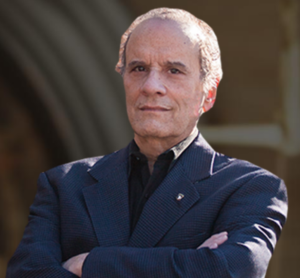
One of my grandkids just asked me, “Paboo, what was a terrible moment when you were a police officer?” They call me Paboo because it combines the Greek word for grandfather (Pappoús) and the fact that I like to scare them, you know, “Boo.” I know they wanted to hear about some heroic moment, significant arrest, or shootout, but I told them this story instead.
I was a brand-new New York City cop, and on this particular summer evening, I was assigned, in uniform, to a footpath in Central Park. Many people attended an outdoor concert, “Shakespeare in the Park.” I was there to make people feel safe and secure. It was early evening, and I was, twirling my night-stick (a skill of which I was rather proud) as people strolled by. I stood there, looking good and twirling my night-stick without even looking at it. I was the epitome of cool. Anyway, the night-stick took a bad hop and hit me in the nose. Blood flowed fast. The people around me were rolling in the grass laughing – literally, a couple of people holding their stomachs laughing dropped to their knees. Several followed me—as I searched for a working water fountain holding a handkerchief to my nose. Some good folks told others about the cop that hit himself in the nose with his night-stick. While that was bad enough, this was the summer of unrest in 1966 in New York City. And folks who didn’t see me hit myself called the police to report an officer with blood on his face was in the middle of a crowd. Fellow police officers arrived in cars from every direction. Over grass mounds, across footpaths, lights, sirens, the whole nine yards. I had to explain over and over again to sergeants, “I hit myself with my night-stick.” They, in turn, shouted to lieutenants and captains, “He hit himself with his night-stick.” After the concert, as folks were leaving along the same footpath, many asked me how I was (and giggled). It was a long night.
Yes, my grandkids liked this story a lot, and they even acted it out.
Thanks for listening,
–Nick Chiarkas
BREAKING THE RULES
 Rules, they say, are made to be broken, and sometimes you just have to do just that and fall back on the pronouncement that the only absolute rule is that there are no rules. I suppose it’s all a matter of perspective. So, let’s take a look at rule breaking.
Rules, they say, are made to be broken, and sometimes you just have to do just that and fall back on the pronouncement that the only absolute rule is that there are no rules. I suppose it’s all a matter of perspective. So, let’s take a look at rule breaking.
In the case of driving a car, for instance, breaking the rules is seldom a good idea, but when you’re driving it’s pretty tempting. When’s the last time you actually drove at the posted speed limit, used your signal for every turn and lane change, or sped up to make it through that yellow light? (Yeah, that last one is actually a violation: accelerating through an intersection.) So, we’re a society that is used to stretching things. When I was a cop, it was standard procedure to give people the benefit of the doubt in most cases of minor infractions while on traffic details. So, a ticket for going five miles over the posted speed limit was virtually unheard of, unless it was necessary for establishing probable cause for a more serious violation. (If your rear license plate light was out you could usually expect a pass unless your driver’s license was suspended or revoked. Then you were out of luck.)
Do we have a similar tolerance for stretching the rules of writing? Just as with driving, I find it almost a natural thing to do, but certain rules seem more sacrosanct than others. I find myself holding the line at splitting an infinitive, although it was done most artfully by Gene Roddenberry in the now classic Star Trek preamble. “To boldly go where no man has gone before . . .” (I think they changed “no man” to “no one” by the time the Next Generation came around as the specter of the rule of political correctness began to raise its ugly head.) But which sounds better? To go boldly or Boldly, to go . . . Neither one has that engaging cadence of the split infinitive original. How something sounds is important in writing, but I still don’t think I would feel comfortable doing it. I suppose we’ll have to wait for the next incarnation of Star Trek to find out if they’re still going to boldly go, or if they’ll to go boldly.
There are other grammatical rules that hold fast for me as well. “Everyone should have his chance to break them,” rather than have “their chance.” Please, don’t get me started on gender neutral pronouns or “choosing one’s own,” but it does seem like we’re edging closer and closer to the Ministry of Truth in George Orwell’s 1984—Control the language and you control the populace, to wit I sadly bring up that it’s now against the law in the state of New York to say certain words like salesman instead of the prescribed salesperson. This ridiculous new law also prohibits the usage of the masculine pronoun, his, as a default in such sentences as the aforementioned Everyone should have his chance to break them. Their now rules. Anybody want to chant, “Yeah, Big Brother?” And let’s not forget the confusion surrounding the use of the transitive verb, to lay, and its kissing cousin, intransitive to lie. How many times have you been lying on the sofa watching someone laying items on the floor? Sometimes it’s better to let sleeping verbs lie, lest you make the statement, as one of our former presidents did, that he didn’t “want anybody to lay down on the job.” It isn’t easy being intransitive in a transitive world, but don’t feel bad. Even spell-check gets that one wrong sometimes.
None of the aforementioned group of rules is absolute, however, when it comes to fiction. To establish the voice of a character, it may indeed be necessary to use improper grammar. I once had a reader send me an e-mail saying that I had incorrectly used the word “irregardless” in a sentence and that is not “a proper word.” I was well aware of this and he was preaching to the choir. He’d referred to a novel I’d written a couple of books ago, but I immediately went back to check on the matter. I did find the “irregardless” in my book, but I replied back to the reader that I knew about this distinction, but that he had failed to take into consideration the context of the usage. I’d used the word in a section of dialogue with the intention of making the character uttering the word sound somewhat pretentious and obviously less intelligent than he thought he was. Thus, sometimes it might be appropriate to bend the rules of grammar to give the reader a better feel of the character.
Sometimes you have to stretch the rules, especially in dialogue. Can you imagine a tough hoodlum saying: “The gun was lying on the floor as I entered the room. Everyone had his hands raised, but I didn’t see anyone else in the front section.” Perhaps, this would work if he were an Ivy League hoodlum. (Note the use of that proper subjunctive mood in the last sentence.) Oftentimes in fiction characterization necessitates stepping inside that character’s shoes. Thus, being immersed in the hoodlum’s point of view, we might decide to break a bunch of rules. “Lemme tell ya, the gun was laying on the floor when I come in. Everybody had their hands up, but I didn’t see nobody up in front.” This voice, improper grammar and all, could also translate into non-spoken sections: Royce looked at this fat-cat dude and knew, straight up, the sucker was lying like there wasn’t no tomorrow. Dude had to be taught a lesson, fo’ sure, and Royce had just the man to be teaching it. He looked toward fat cat and smiled. “If you lying, I be introducing you to a friend of mine named Bubba, and he the kind that’ll cut you first and say he sorry later.”
Sure, I stretched a couple rules, but I think you got a better feeling of the character by doing so. So, in this sense, as in my aforementioned use of irregardless, in fiction you can stretch the rules a bit under the guise of artistic license. Certainly, if you’re writing a non-fiction piece, such as an article or a text book, you should make every effort not to break the rules. (Would that have sounded more natural if I’d written <grin> “to not break the rules?”) I must admit, I was tempted, but I just couldn’t do it.
The bottom line is you should first know what the rules are, and then and only then allow yourself to break them, if necessary in order to get the job done. It’s sort of like driving 55 in a 45 because you don’t want to impede the flow of traffic.
And how many times did I hear that excuse when I’d pulled someone over for speeding? But sometimes you just gotta break those rules to boldly go where no man or woman or whomever has gone before.
–Michael A. Black
MEMBER NEWS
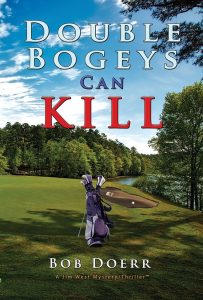 Bob Doerr would like to announce the release of Double Bogeys Can Kill, his ninth book in the Jim West mystery/thriller series. In this book Jim travels to Myrtle Beach, SC, to join 15 other retired air force officers for a week of golf and comradery. What should be a fun relaxing week, goes terribly wrong in the first day when one of the golfers is murdered. As the list of suspects narrows down to one of the golfers, Jim is pressed by his fellow golfers to identify the killer. The police also push Jim to be their source of information from within the group. Jim wants none of it but is stuck between a rock and the proverbial hard place. When he is attacked and almost killed, things become a bit personal. All Jim wants to do is try to improve his struggling golf game, but as the week winds on, he finds himself deeper in the investigation. Ultimately, he comes face to face with a killer who is ready to die and take Jim with him.
Bob Doerr would like to announce the release of Double Bogeys Can Kill, his ninth book in the Jim West mystery/thriller series. In this book Jim travels to Myrtle Beach, SC, to join 15 other retired air force officers for a week of golf and comradery. What should be a fun relaxing week, goes terribly wrong in the first day when one of the golfers is murdered. As the list of suspects narrows down to one of the golfers, Jim is pressed by his fellow golfers to identify the killer. The police also push Jim to be their source of information from within the group. Jim wants none of it but is stuck between a rock and the proverbial hard place. When he is attacked and almost killed, things become a bit personal. All Jim wants to do is try to improve his struggling golf game, but as the week winds on, he finds himself deeper in the investigation. Ultimately, he comes face to face with a killer who is ready to die and take Jim with him.
In addition to his Jim West series, Bob has four books published in his Clint Smith thrillers series, four books out in his Enchanted Coin, juvenile fiction series, and three novellas he has self-published on Amazon.
Author announcement- John Schembra
COMING SOON!!
My 7th book is currently undergoing final editing and cover art and will be published in the near future! A thrilling tale of demonic possession and one cop’s epic struggle between good and evil.
The Spinster, the Rebel, and the Governor
Exciting & Unique New Historical Mystery
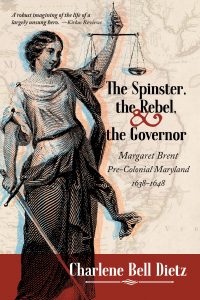 September 2, 2022, The Spinster, the Rebel, and the Governor by award winning author, Charlene Bell Dietz and published by Quill Mark Press is available at Independent Bookstores and on Amazon.com and Barnes &Noble. Com. A historical mystery full of suspense, secrets and scandalous actions, the author begins to unravel the life of a fascinating and brave woman who was also one of the first female attorney’s in America.
September 2, 2022, The Spinster, the Rebel, and the Governor by award winning author, Charlene Bell Dietz and published by Quill Mark Press is available at Independent Bookstores and on Amazon.com and Barnes &Noble. Com. A historical mystery full of suspense, secrets and scandalous actions, the author begins to unravel the life of a fascinating and brave woman who was also one of the first female attorney’s in America.
She’s always watched. Whatever she does—no matter where she goes— her family knows her life is in peril. Even when Catholic, Lady Margaret Brent, in 1638, flees to the New World she’s watched. After erecting a fort for protection, she realizes the new enemy in this land is not the only one who plans to murder her. In this unique, historical-suspense mystery, Lady Margaret, in spite of obstacles, insists on righting all wrongs, placing her life in grave danger.
Charlene Bell Dietz writes science and historical-suspense, award-winning mystery novels and short stories. Her award-winning short stories have been published in the Rocky Mountain Fiction Writers 2016 Anthology and Southwest Writers 2019 Anthology. The Flapper, the Scientist, and the Saboteur combines family saga with corporate espionage. The Flapper, the Impostor, and the Stalker propels readers back into 1923 frenetic Chicago during the Roaring Twenties. Both these novels were named to Kirkus Reviews’ Best Books of 2018, and each won the coveted Kirkus Starred Review. Her novel, The Scientist, the Psychic, and the Nut, gives readers a frightening Caribbean vacation. Her newest book, a biographical historical novel, starts in England in 1638 and ends in pre-colonial Maryland.
Charlene, a retired educator, traveled the United States as a consultant for Houghton Mifflin Publishers after a career of teaching little ones, older ones, and college graduates. Surrounded by forests and meadows, she currently lives in the foothills of the mountains in central NM several miles from the small village of Torreon. Charlene was the current president of Croak & Dagger for several years, New Mexico’s Chapter of Sisters in Crime. She also belongs to Rocky Mountain Fiction Writers, Rocky Mountain Mystery Writers, Mystery Writers of America, Southwest Writers and Public Safety Writers Association.
Following is an excerpt from the book, there are others on her website. Connect with Charlene on Facebook, https://inkydancestudios.com/ or chardietzpen@gmail.com
ISBN # 978-1-945-21238-3 Hardcover/ISBN # 978-1-945-21239-0 Soft Cover
ISBN# 978-1-945-21240-6 eBook
MARGARET BRENT BOOK:
America’s first woman lawyer—a smart, tough noblewoman, who just does what needs to be done—in biographical fiction by another smart, tough woman. Who could ask for more?
Ann D. Zeigler, attorney
Award-winning author, Tips Lawyers Wish You Knew / Preserving Electronic Evidence for Trial
AV rated, Marquis Who’s Who in America, Albert N. Marquis Award
Excerpt:(Chapter 3, page 41-42)
Their cousin Cecil, the second Lord Baltimore, addressed the men. “I’ve spoken of colonization before. You’ve listened politely, but your loyalties remain with your king and England. I understand, as do mine.”
“Then you’ve no need to speak more of this.” Edward said.
“But I do.” Cecil narrowed his eyes.
Richard said, “You forgot something rather important, my friend.”
Cecil hesitated.
“You must consider the king’s act that restrains the popishly bred from going beyond the seas and the punishments for those who assist.”
Giles looked up from the map. “Popish—the hell. King Charles can’t even bring himself to say Catholic.”
“Silly. Everyone but those of us who are says ‘popish.’” Margaret now waited for her father to reprimand her, but he said nothing.
“A serious point, my friend. Dangerous times, indeed,” said Cecil. “King Charles’s wrath increases and will come down on those who refuse to conform to the Church of England.”
Fulke shut his eyes a moment before saying, “You’re a kind gentleman, sir. But if you pursue this, you will certainly lose everything you and your father have acquired. Even your mentioning this to us puts you in jeopardy.”
“Every second of every day puts us all in jeopardy. Today and the weeks forward, your family may suffer destruction beyond your imagination.” He took several paces then stopped and studied each of the men. “Please, friends, decide to take my offer. It takes time and special negotiations to arrange a safe passage for you. Remember, a most disagreeable mood has overtaken England concerning passengers who refuse to take the oath of allegiance and acknowledge the king’s supremacy. We need to be clever so as not to be entrapped.”
A tap on the door stopped the conversation. Mary glanced at her father, then rose, and opened it.
Pursell stood waiting to be acknowledged.
“Yes?” said Richard.
“Sir, supper will be served within the hour, and also there’s a man at the back door. He’s asked to speak with you.”
“Cecil, good friend, will you join us in a late supper?”
“It’s past time for me to be on my way to Ilmington. Please consider what we’ve discussed. I’ll send word where we may engage in a private meeting.”
“Pursell,” Richard said, “have Dary see Lord Calvert’s carriage and horse are brought forth.”
Lord Calvert strode to the table. He placed with great care what must have been his cherished map on top and slid the stack into a burgundy, embossed leather folio. Gathering his cape and hat and in good cheer, bowed his farewell.
Her father squinted at his servant. “Tell me, what brings this fellow to our door at this hour?”
“He says his name is John Coates, sir. It seems a young girl saw Lady Margaret talking with his son earlier this afternoon. His son has gone missing, and the sheriff has found a dead man.”
Getting Acquainted with a Spinster:
Why Margaret Brent’s Story Needs to be Told
Charlene Bell Dietz
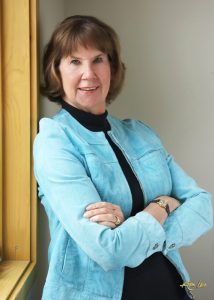 My fourth book, The Spinster, the Rebel, and the Governor: Margaret Brent, Pre-Colonial Maryland 1638-1648, inadvertently started from searching genealogy records. Caution, genealogy can throw you into embarrassing moments and cause you to wonder what seedy 1600s’ DNA might filter down to the present.
My fourth book, The Spinster, the Rebel, and the Governor: Margaret Brent, Pre-Colonial Maryland 1638-1648, inadvertently started from searching genealogy records. Caution, genealogy can throw you into embarrassing moments and cause you to wonder what seedy 1600s’ DNA might filter down to the present.
Giles Brent, a thirty-some-year-old man, married a nine-year-old Indian Princess. Reading on, researchers branded Giles Brent as an opportunist set on acquiring land through this marriage. Further study finds this young Indian Princess to be a ward of the Governor of Maryland, Leonard Calvert, and his good friend, Lady Margaret Brent, Giles’s sister and a spinster.
Red flag waving here! Why would a powerful man, such as the governor, have a spinster for a good friend, and why would the two of them allow this inappropriate marriage?
Diving into the Maryland Historical Society’s Archives, I found a treasure of a story, not about Giles, but his sister, Margaret Brent. However, mystery surrounded Spinster Brent. She left no diaries, letters, journals, or other primary source material except for the 134 court cases she presented in pre-colonial Maryland and a will. Dr. Lois Green Carr organized these case documents recording Margaret’s court appearances. These revealed information about an incredible woman who would right all wrongs.
Now totally hooked, I faced a huge problem. I needed to hear how Margaret sounded, how she expressed her thoughts and opinions, but her will was the only surviving document she wrote. The usual straight forward researching wouldn’t work because of such sparse original source material. So, I examined and evaluated historical and genealogical records and articles tangential to her and her world. I had to understand the political and social events of the 1600s, both in England and in Maryland. The second Lord Baltimore promised her she could own land and enjoy religious freedom in Maryland. She fled to his province in the New World with a sister, Mary, and two brothers, Fulke and Giles. Margaret’s numerous court-cases provided abundant information about life in pre-colonial Maryland and showed how friends and neighbors grew to respect her. As I picked apart and examined her legal cases I started to hear Margaret’s voice and understand her heart. Researchers have written much about Governor Leonard Calvert and the notable men in Maryland, highlighting their personalities and actions, giving me insight on how they might respond to a woman invading their courtroom. Investigating numerous documents, I also uncovered deep, internal conflicts among these men, which revealed logical reasons for what appeared to be rather bizarre behaviors.
Understanding motivations help explained many irregular actions of Margaret Brent and others who lived in pre-colonial Maryland. How could Governor Calvert not become best friends with such an intelligent woman who regularly appeared in his courts? For some undisclosed reason, Margaret, unlike others of St. Mary’s, built a fort around her home, which later became the Catholic garrison during a deadly Protestant rebellion. Researchers say the governor built her fort during the rebellion. Wouldn’t this be equivalent to building a boat while swimming? She and the governor educated an Indian Princess, even though her great fear of the Native Americans probably became the motivation for her fort construction. On his deathbed, Governor Calvert shocked everyone when he named Margaret his executrix. Margaret Brent, named as attorney for the second Lord Baltimore, surprised the court by asking for the right to vote, not once but twice, preempting Susan B. Anthony by several hundred years.
In the end, Margaret’s intelligence, integrity, bravery, and fortitude protected Maryland from being destroyed and reverting back to Virginia. And if you’re still curious about the scandalous story concerning Giles Brent and the young Indian maiden you can discover what might be closer to the truth in The Spinster, the Rebel, and the Governor: Margaret Brent, Pre-Colonial Maryland 1638-1648.